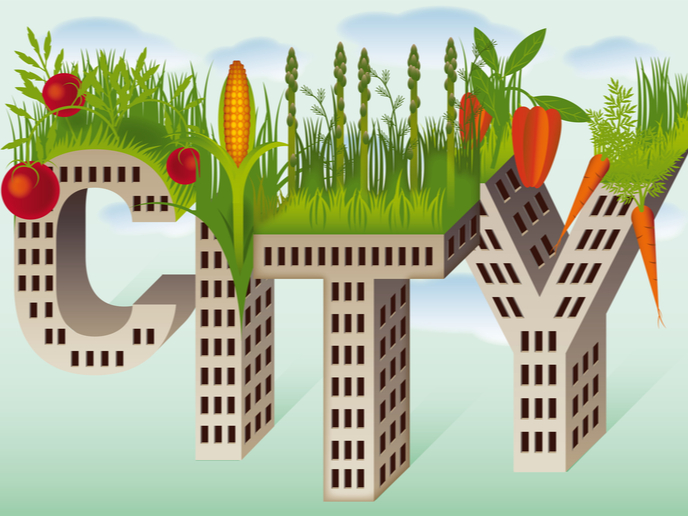The role of cities in building sustainable, healthy and fair food systems
With initiatives such as its Farm to Fork Strategy(opens in new window), the EU is striving to build food systems that can sustainably feed the close to 450 million people living within its borders. To create such sustainable food systems, it needs to tackle issues such as climate change, resource scarcity, unhealthy eating habits and increasing waste. However, what role do cities play in achieving Europe’s vision of food systems that are not only sustainable but also healthy and fair? The EU-funded FOOD TRAILS project attempted to find an answer to this question by hosting a series of online breakfast dialogues. The dialogues brought together key figures in European politics, local government and food policy to discuss how cities can help transform food systems while also helping Europe meet its climate goals.
Fair food systems
In the first dialogue, Member of the European Parliament for the Italian region of South Tyrol and rapporteur for the Farm to Fork Strategy Herbert Dorfmann highlighted the importance of rebuilding the link between cities and rural areas. “In the last decades, the gap between urban and rural citizens has widened. Supermarkets can sell farmers’ products but the most important is for citizens to see the farmers in the city. On this point, the Farm to Fork Strategy will be a critical tool,” he stated in an article(opens in new window) posted on the ‘Slow Food’ website. During the COVID-19 pandemic, cities with close links to farmers and other actors from the food supply chain were better able to adapt to the crisis. Deputy Mayor of Milan Anna Scavuzzo described her city’s work with networks like Eurocities and the Milan Urban Food Policy Pact to ensure people’s access to food through efforts such as food basket distribution, food vouchers and financial aid. “We tried to make sure that even poor people could afford and access good food, and we managed to overcome the lockdown. This is what can happen when a food policy starts to take shape,” she remarked.
Healthy food, healthy practices
The second session emphasised the importance of having healthy food systems. Councillor Paulette Hamilton from Birmingham discussed the steps her city has taken to curb the growth of fast food chains, to make healthy food choices an easier option and to empower businesses to build a healthier food economy. “It’s about changing the food environment, without pressuring and blaming consumers,” explained Hamilton. To aid the fight against unhealthy food, the European Commission is issuing a Code of Conduct for Responsible Business and Marketing Practices(opens in new window). According to Alexandra Nikolakopoulou, Head of Unit at the Directorate-General for Health and Food Safety, this “will encourage the food industry to commit to increasing the availability of healthy and nutritious food.” In the third dialogue, Franciska Rosenkilde, Mayor of Culture and Leisure for Copenhagen, described the city’s efforts to ensure nutritious food through public procurement. The aim is to make organic 90 % of the school meals served daily in the capital. “Healthy bodies, healthy earth, healthy climate,” observed Rosenkilde. “They are all interlinked.” The FOOD TRAILS (Building pathways towards FOOD 2030-led urban food policies) project is designing pilot activities in 11 European cities to help them co-create urban food policy that empowers the community and promotes sustainable food supply and zero waste. For more information, please see: FOOD TRAILS project website(opens in new window)



